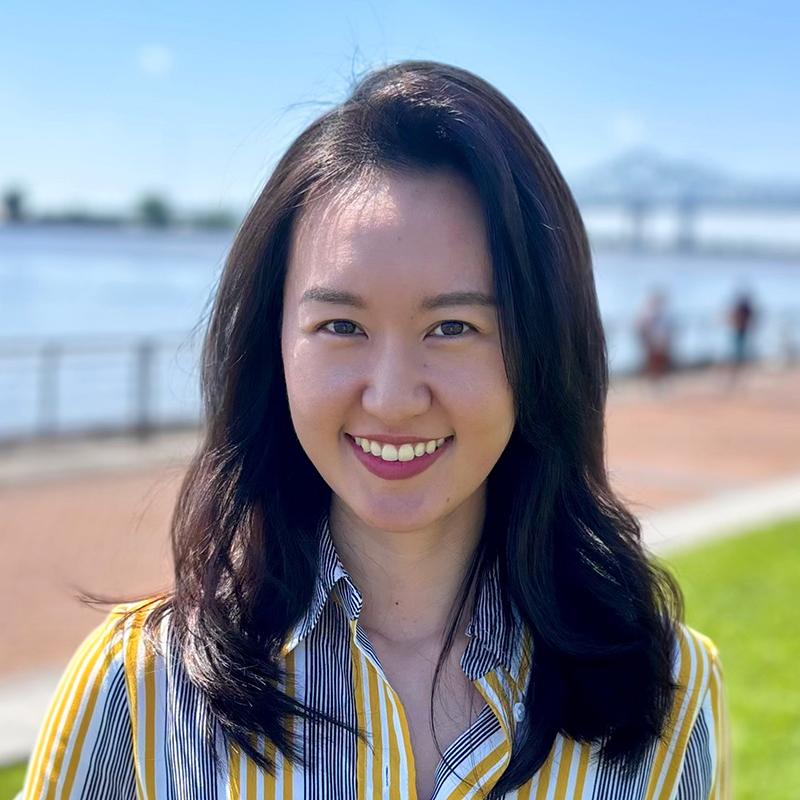Professor receives prestigious award for VR research
Dr. Audrey Hang Hai, PhD, LMSW, just received a nearly half-million-dollar grant from the National Institutes of Health (NIH). The grant funds a two-year research study that aims to assess the feasibility of using TRIPP, a virtual reality mindfulness app, as an intervention to support people with comorbid HIV and substance use. Determining whether the app is usable and engaging as a treatment method will allow Dr. Hai and other social workers to adapt and enhance the interventions to meet the specific needs of this population.
“I’ve long been interested in using innovative, culturally responsive approaches to support people who face overlapping health and social challenges,” Hai said. “After trying the TRIPP VR mindfulness app myself, I found it surprisingly engaging and easy to use, while still preserving the core benefits of mindfulness. It felt like a promising way to meet people where they are and support well-being in a more accessible, private, and immersive format.”
The first step of the study is designing an orientation video, which will guide participants through the process of using VR technology and introduce mindfulness in an encouraging and relatable way. Then, participants will use the program regularly over the course of three months and provide feedback on their experience.
Dr. Hai is hopeful that study participants will become comfortable not only with their VR headsets and the TRIPP app, but with day-to-day mindfulness techniques that may previously have been out of reach due to systemic barriers.
“Many people living with HIV and substance use face chronic stress, trauma, stigma, and structural inequities,” Hai said. “These factors can make it hard to feel safe or focused in traditional healthcare or group-based mindfulness settings, especially if the intervention doesn’t reflect their lived experiences. There may also be mistrust toward mental health services, limited access to in-person programs, or practical barriers like transportation, time, and financial obstacles.”
VR technology overcomes some of those barriers, as it can be used privately in a participant’s own space. And while VR headsets can be prohibitively expensive, study participants will be sent free headsets, which Dr. Hai hopes can be reused and shared in clinical and community settings.
“This study could lay the groundwork for integrating immersive technologies like VR into behavioral health services, especially for populations historically underserved by traditional models,” Hai said. “If we find that this approach is feasible and meaningful, it could lead to more trauma-informed, tech-enhanced interventions that social workers could use in clinical or community settings to help clients manage stress, improve emotional regulation, and build resilience.”
Dr. Hai encourages social workers and students to think creatively about nontraditional tools as engaging, accessible therapeutic interventions. Interventions, she says, are not one-size-fits-all, even when they are evidence-based.
“Understanding people’s lived experiences—especially around stigma, trauma, and resilience—is key. Remember that relationship-building, cultural humility, and creativity are just as important as clinical techniques.”

